Sourbh Bhadane
Do Neural Networks Compress Manifolds Optimally?
May 17, 2022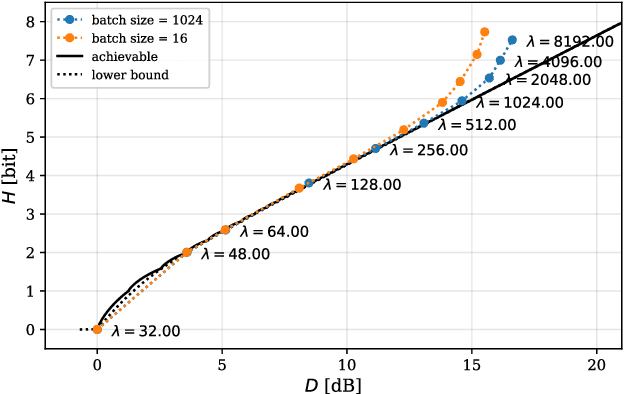

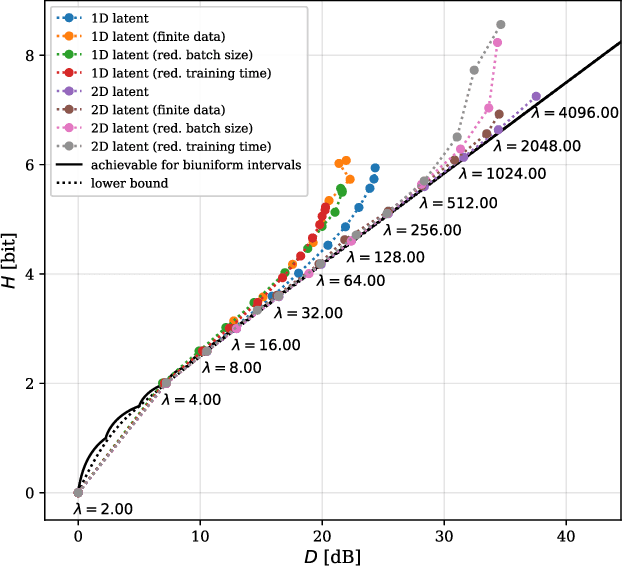

Abstract:Artificial Neural-Network-based (ANN-based) lossy compressors have recently obtained striking results on several sources. Their success may be ascribed to an ability to identify the structure of low-dimensional manifolds in high-dimensional ambient spaces. Indeed, prior work has shown that ANN-based compressors can achieve the optimal entropy-distortion curve for some such sources. In contrast, we determine the optimal entropy-distortion tradeoffs for two low-dimensional manifolds with circular structure and show that state-of-the-art ANN-based compressors fail to optimally compress the sources, especially at high rates.
On One-Bit Quantization
Feb 10, 2022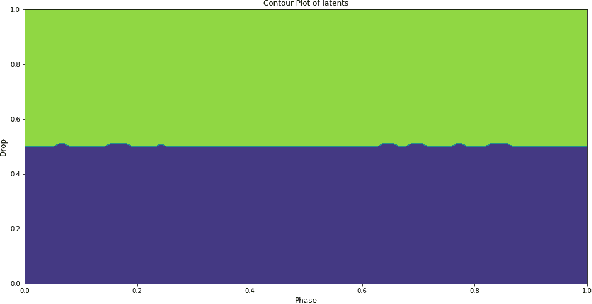
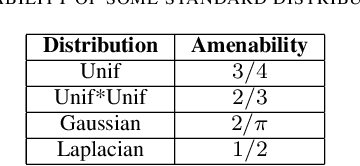
Abstract:We consider the one-bit quantizer that minimizes the mean squared error for a source living in a real Hilbert space. The optimal quantizer is a projection followed by a thresholding operation, and we provide methods for identifying the optimal direction along which to project. As an application of our methods, we characterize the optimal one-bit quantizer for a continuous-time random process that exhibits low-dimensional structure. We numerically show that this optimal quantizer is found by a neural-network-based compressor trained via stochastic gradient descent.
Principal Bit Analysis: Autoencoding with Schur-Concave Loss
Jun 08, 2021
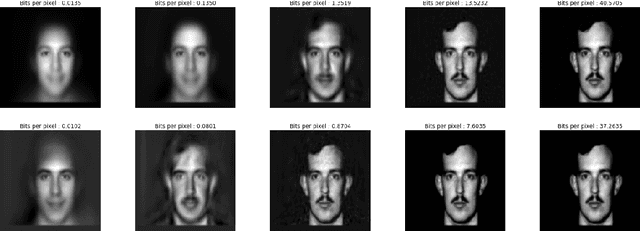
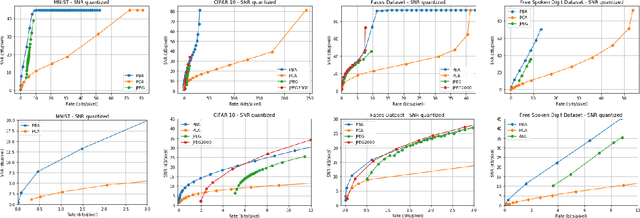
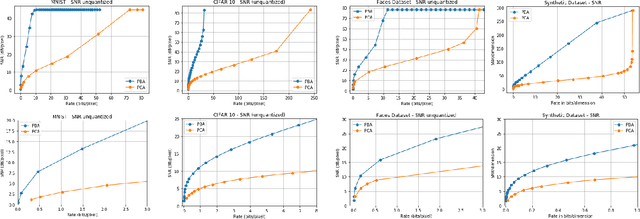
Abstract:We consider a linear autoencoder in which the latent variables are quantized, or corrupted by noise, and the constraint is Schur-concave in the set of latent variances. Although finding the optimal encoder/decoder pair for this setup is a nonconvex optimization problem, we show that decomposing the source into its principal components is optimal. If the constraint is strictly Schur-concave and the empirical covariance matrix has only simple eigenvalues, then any optimal encoder/decoder must decompose the source in this way. As one application, we consider a strictly Schur-concave constraint that estimates the number of bits needed to represent the latent variables under fixed-rate encoding, a setup that we call \emph{Principal Bit Analysis (PBA)}. This yields a practical, general-purpose, fixed-rate compressor that outperforms existing algorithms. As a second application, we show that a prototypical autoencoder-based variable-rate compressor is guaranteed to decompose the source into its principal components.
Estimating Entropy of Distributions in Constant Space
Nov 18, 2019
Abstract:We consider the task of estimating the entropy of $k$-ary distributions from samples in the streaming model, where space is limited. Our main contribution is an algorithm that requires $O\left(\frac{k \log (1/\varepsilon)^2}{\varepsilon^3}\right)$ samples and a constant $O(1)$ memory words of space and outputs a $\pm\varepsilon$ estimate of $H(p)$. Without space limitations, the sample complexity has been established as $S(k,\varepsilon)=\Theta\left(\frac k{\varepsilon\log k}+\frac{\log^2 k}{\varepsilon^2}\right)$, which is sub-linear in the domain size $k$, and the current algorithms that achieve optimal sample complexity also require nearly-linear space in $k$. Our algorithm partitions $[0,1]$ into intervals and estimates the entropy contribution of probability values in each interval. The intervals are designed to trade off the bias and variance of these estimates.
 Add to Chrome
Add to Chrome Add to Firefox
Add to Firefox Add to Edge
Add to Edge